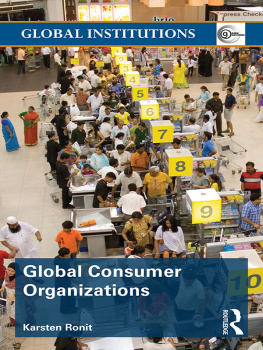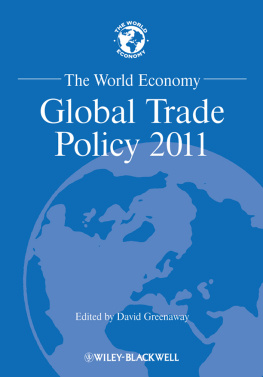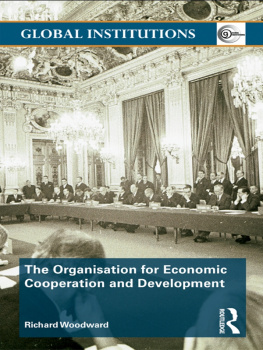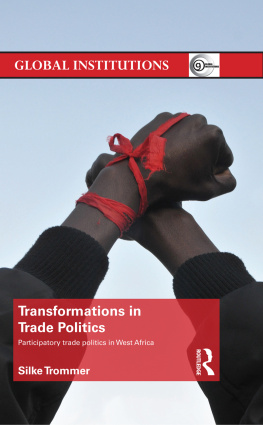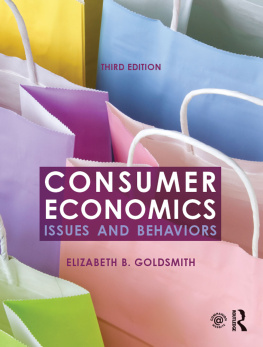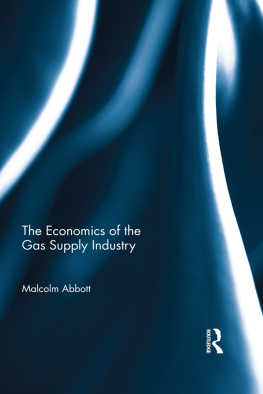Global Consumer Organizations
As corporate activity continues to expand in line with the continued globalization of the economy, there is an increasing demand for establishing rules to regulate the trans-boundary activities of firms and their many and complex relations with consumers. Until now, sources of knowledge in this field have been scattered and unsystematic, and this volume fills an important gap in current literature.
The book:
Provides a historical overview that traces the early attempts made before the Second World War to formulate elements of global consumer policy, highlighting key issues, and initiatives up to the 1980s.
Outlines the groups of organizations that are responsible for dealing with consumer issues in areas such as trade and development, socio-economics and the environment, including the Organisation for Economic Co-operation and Development, World Trade Organization, International Monetary Fund, United Nations Conference on Trade and Development, and World Bank.
Analyses the group of special intergovernmental organizations that address the problems of specific consumer segments, industries, and service providers, including the World Health Organization, International Telecommunication Union and World Tourism Organization.
Evaluates current and future challenges and dilemmas facing consumer organizations and addresses the continuing issues of coordination between them.
Studies the role played by organizations in the consumer movement as well as the contributions of organized business and the different initiatives of self-regulation.
Providing a much needed overview of this key area in international organization, Global Consumer Organizations will be of interest to students and scholars in a range of areas, including international political economy, international organizations, global governance, economic policy, and consumer behaviour.
Karsten Ronit is Associate Professor of Political Science at the Department of Political Science, University of Copenhagen, Denmark.
Global Institutions
Edited by Thomas G. Weiss
The CUNY Graduate Center, New York, USA
and Rorden Wilkinson
University of Sussex, Brighton, UK
About the series
The Global Institutions Series provides cutting-edge books about many aspects of what we know as global governance. It emerges fromour shared frustrations with the state of available knowledgeelectronic and print-wise, for research and teachingin the area.The series is designed as a resource for those interested in exploring issues of international organization and global governance. And since the first volumes appeared in 2005, we have taken significant strides toward filling conceptual gaps.
The series consists of three related streams distinguished by their blue, red, and green covers. The blue volumes, comprising the majority of the books in the series, provide user-friendly and short (usually no more than 50,000 words) but authoritative guides to major global and regional organizations, as well as key issues in the global governance of security, the environment, human rights, poverty, and humanitarian action among others. The books with red covers are designed to present original research and serve as extended and more specialized treatments of issues pertinent for advancing understanding about global governance. And the volumes with green coversthe most recent departure in the seriesare comprehensive and accessible accounts of the major theoretical approaches to global governance and international organization.
The books in each of the streams are written by experts in the field, ranging from the most senior and respected authors to first-rate scholars at the beginning of their careers. In combination, the three components of the seriesblue, red, and greenserve as key resources for faculty, students, and practitioners alike. The works in the blue and green streams have value as core and complementary readings in courses on, among other things, international organization, global governance, international law, international relations, and international political economy; the red volumes allow further reflection and investigation in these and related areas.
The books in the series also provide a segue to the foundation volume that offers the most comprehensive textbook treatment available dealing with all the major issues, approaches, institutions, and actors in contemporary global governanceour edited work International Organization and Global Governance (2014)a volume to which many of the authors in the series have contributed essays.
Understanding global governancepast, present, and futureis far from a finished journey. The books in this series nonetheless represent significant steps toward a better way of conceiving contemporary problems and issues as well as, hopefully, doing something to improve world order. We value the feedback from our readers and their role in helping shape the on-going development of the series.
A complete list of titles appears at the end of this book. The most recent titles in the series are:
World Trade Organization (2nd edition, 2015)
by Bernard M. Hoekman and Petros C. Mavroidis
Women and Girls Rising (2015)
by Ellen Chesler and Terry McGovern
The North Atlantic Treaty Organization (2nd edition, 2015)
by Julian Lindley-French
Governing Climate Change (2nd edition, 2015)
by Harriet Bulkeley and Peter Newell
The Organization of Islamic Cooperation (2015)
by Turan Kayaoglu
Contemporary Human Rights Ideas (2nd edition, 2015)
by Bertrand G. Ramcharan
The Politics of International Organizations (2015)
edited by Patrick Weller and Xu Yi-chong
First published 2015
by Routledge
2 Park Square, Milton Park, Abingdon, Oxon OX14 4RN
and by Routledge
711 Third Avenue, New York, NY 10017
Routledge is an imprint of the Taylor & Francis Group, an informa business.
2015 Karsten Ronit
The right of Karsten Ronit to be identified as author of this work has been asserted by him in accordance with the sections 77 and 78 of the Copyright, Designs and Patent Act 1988.
All rights reserved. No part of this book may be reprinted or reproduced or utilized in any form or by any electronic, mechanical, or other means, now known or hereafter invented, including photocopying and recording, or in any information storage or retrieval system, without permission in writing from the publishers.
Trademark notice: Product or corporate names may be trademarks or registered trademarks, and are used only for identification and explanation without intent to infringe.
British Library Cataloguing in Publication Data
A catalogue record for this book is available from the British Library
Library of Congress Cataloging in Publication Data
A catalog record for this book has been requested
ISBN: 978-0-415-67340-2 (hbk)
ISBN: 978-0-415-67341-9 (pbk)
ISBN: 978-1-315-67391-2 (ebk)
This book project began many years ago, in my mind at least, when I discovered that relatively little had been written on the role of organized consumers in national and international policy-making, and that this complex policy field evolved through the contributions of many public and private actors. I further noticed that scholarly interest in organized consumers, and consumer policy more broadly, lagged far behind the interest in organized labor and environmental groups. Perhaps it was easier to develop sympathies with suppressed workers and their cause, or with environmental activists and their struggles, than with consumers who endeavor mainly to improve their position within the market economy, rather than challenge the economic system as such. While this lacuna in research and its possible backgrounds somehow lingered in my mind, it took me many years to move into studying consumer policy and its various actors more concretely; but, following the publication of two books on Danish consumer policy, I decided to analyze the work of global organizations. Although national consumer policies have their distinct features, it is increasingly difficult to separate domestic from international domains.

